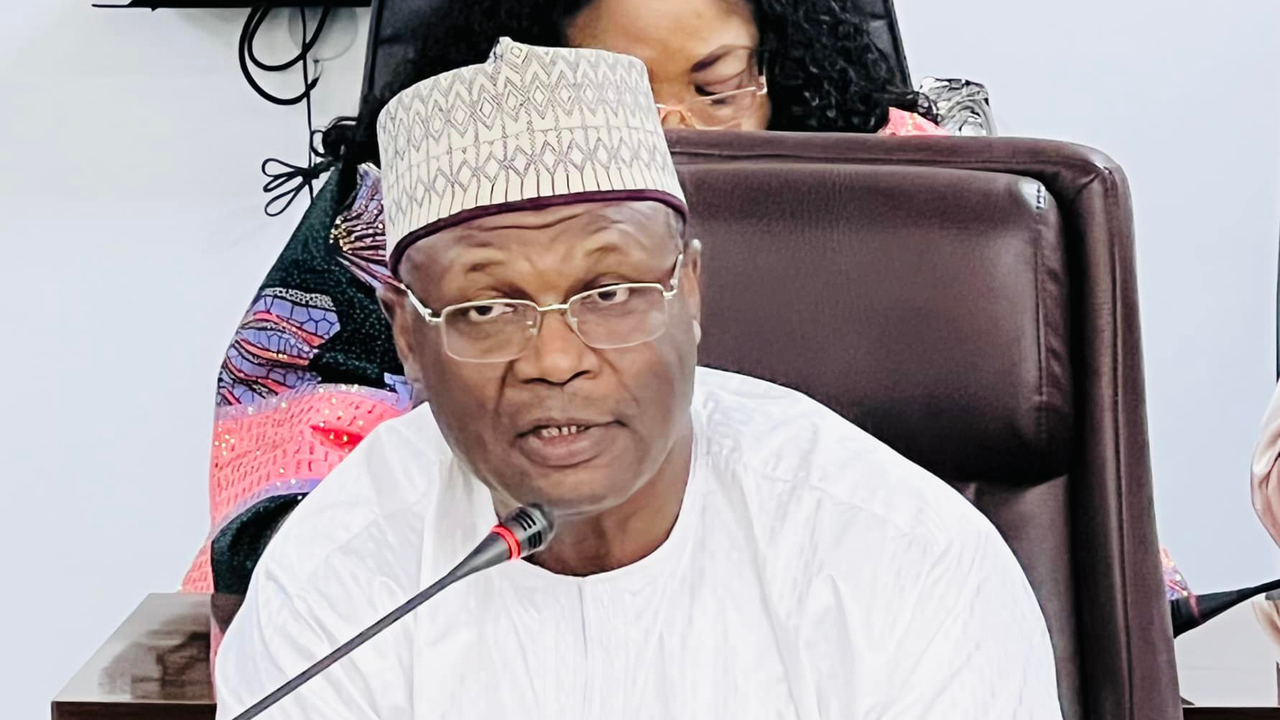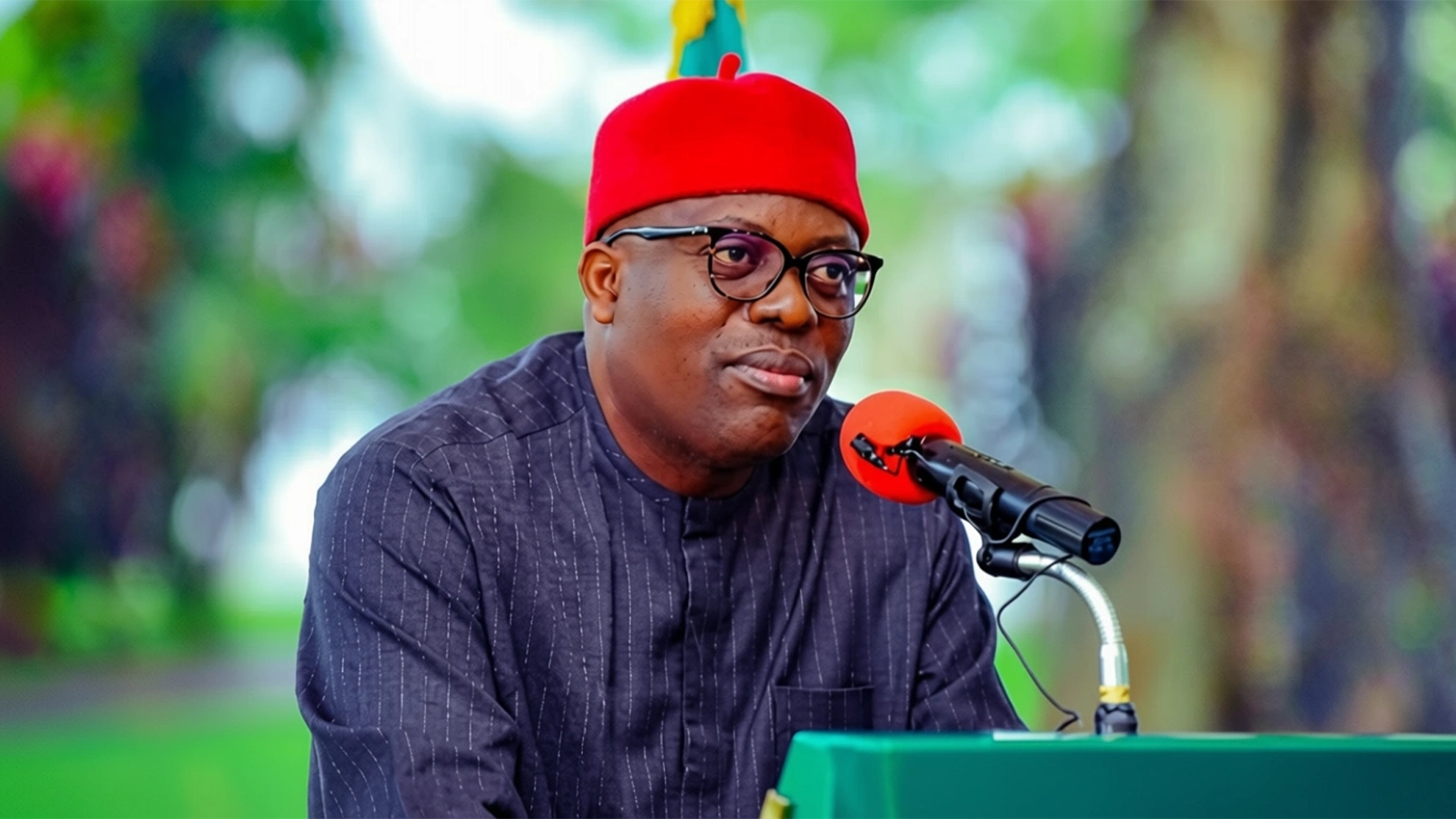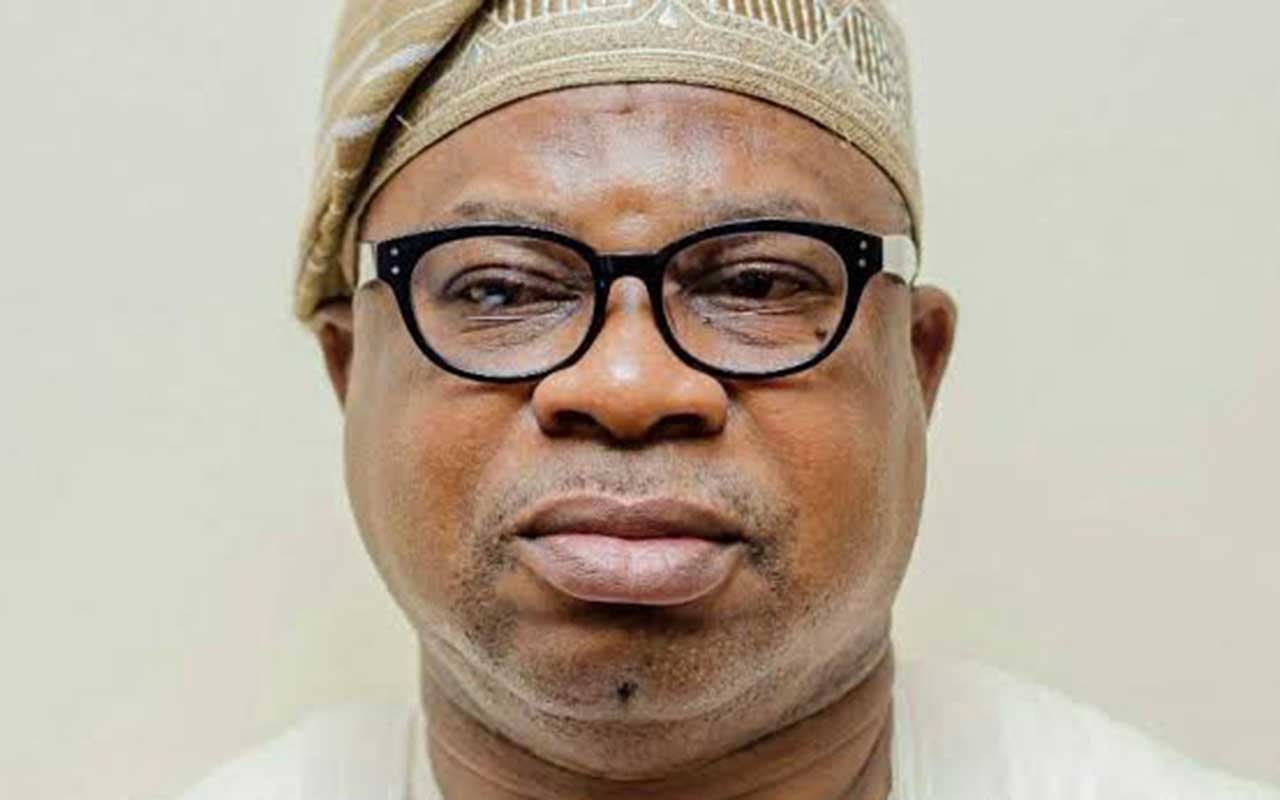
This time around, the judicial pronouncement by Nigeria’s court of final instance, the Supreme Court, is the bone of contention. And, while the controversy over the import of the court’s judgment on the leadership crisis within the party rages, the Independent National Electoral Commission (INEC) is expected to play its role as an impartial umpire in the political and electoral processes of the country.
And, while the nation awaits the final action of INEC on the final decision of the apex court’s ruling on APGA’s internal leadership disputation, the notion among well-meaning Nigerians is that the APGA situation calls for serious concern.
APGA came into being when a similar orchestrated plan playing out in the two major political parties began in the then governing Peoples Democratic Party (PDP). The then President Olusegun Obasanjo, out of apprehension thought that the platform could galvanise the Southeast geopolitical in such a way to threaten his ability to control the politics of the country.
Knowing how far the Alliance for Democracy (AD) made things hard for him, the former military head of state reasoned that a cohesive APGA could compound his woes and leave him at the mercy of the Peoples Democratic Movement (PDM) elements from the north led by the then Vice President, Alhaji Atiku Abubakar.
So, deploying a combination of carrot and stick, President Obasanjo was able to use weaker elements within APGA to manipulate the party in such a way that major political actors from the Southeast did not rally around the former Biafra secessionist leader, Ikemba Emeka Odumegwu-Ojukwu, who was propped up as the party’s presidential standard bearer for the 2003 presidential poll.
Part of the strategic assault on APGA was the offer of automatic second-term tickets to incumbent PDP governors, especially those from the five Southeast states. Then followed the destabilisation of the party through a leadership crisis within the party’s National Working Committee (NWC).
It was through that insurrection that the party’s National Treasurer, Sir Victor Umeh, usurped the office of the national chairman after instigating the debatable suspension of the founding national chairman, Chief Chekwas Okorie.
In many press conferences after the leadership crisis broke out, Okorie did not fail to inform Nigerians that he was being punished for fielding the former Biafran secessionist leader as APGA’s presidential contender.
For instance, at a world press conference at the Zodiac Hotel, Enugu, Okorie had boasted that the 2003 presidential contest would be “a battle among three Army Generals, namely General Obasanjo from West, General Muhammadu Buhari from the North and the peoples General, Ikemba Odumegwu Ojukwu from the East.”
Following his inexplicable suspension and replacement with the party’s former Treasurer, Okorie went to court. But, as he walked through the courts seeking justice, the crisis had assumed an inter-state battle for the control of the APGA structure.
While Okorie, who hails from Abia State had a PDP governor in his state, Umeh, from Anambra State had Ojukwu and Governor Peter Obi behind him. Consequently, using insiders within the Independent National Electoral Commission (INEC), the Anambra APGA leaders were able to ensure a stalemate. INEC cleverly took cover under the alibi of frivolous court injunctions to avoid due diligence on the observance of the constitutional stipulations as they pertain to the removal and replacement of APGA chairman.
One feature of Chief Umeh’s eight-year term as APGA national chairman, no court of the land pronounced him (Umeh) as such, because while he usurped the office after abandoning his position as national treasurer in 2004, the national convention that gave him a second term was also held in breach of subsisting court orders.
An Enugu High Court presided over by the then Chief Judge, Justice Innocent Umezuluike, ruling on a case filed by Okuli Jude, a former Udi local government chairman of the party, declared that his tenure had expired, Umeh lacked the powers to summon the National Executive Committee (NEC) meeting that fixed the date for APGA national convention.
Taking advantage of the court ruling, APGA held a parallel national convention that produced Maxi Okwu as national chairman. But, surprisingly at the approach of the 2013 Anambra State governorship poll, Governor Obi, who was supporting Okwu, reconciled with Umeh.
It should be noted that frustrated by the curious state of affairs in the party he founded alongside other well-meaning individuals, Okorie quit and went ahead to form another party, United Progressive Party (UPP), which was eventually delisted by INEC for failing to net a single electoral win.
However, as if APGA has a covenant with crisis, Victor Oye, who succeeded Victor Umeh as national chairman, ran into troubled waters, when he aspired for a second term.
After the ward, local government and state congresses leading to the party’s national convention scheduled for Owerri on May 31, 2019, Oye cancelled the processes mainly because delegates that emerged for the convention were not likely to honour him with their votes for a second term.
Apart from upturning the outcomes of the congresses, Oye also sacked the Board of Trustees and handpicked new members, who at a meeting in the Government House, Awka, set a new convention venue for Awka.
However, unknown to him (Oye), the tenure of party functionaries he sought to use for the Awka convention had already elapsed.
Piqued by the attempt to change the goalpost in the middle of a football match, APGA officials, including members of the BoT he whimsically dissolved, approached various courts, including Delta and Oyo States, where they secured an injunction against holding the convention in Awka.
With the legal window, the APGA convention was held in Owerri and Chief Edozie Njoku was elected as national chairman alongside other party functionaries. But, supported by the then Governor of Anambra State, Chief Willie Obiano, Oye clung to the position, claiming that he was equally elected at the Awka convention.
Judicial abracadabra
IN what presented another cheap rehash of the Umeh versus Okorie leadership crisis, one Jude Okeke showed in Abuja, where he not only announced the suspension of Njoku but also that he had assumed the position of acting national chairman.
The emergence of Jude Okeke came as a twist in the APGA leadership because Njoku was in court, where he was seeking an order of mandamus compelling INEC to officially recognise him as the validly elected national chairman of APGA.
Oye had also filed an interlocutory appeal at the Court of Appeal praying the court to compel Justice Umar of the Federal High Court to rule on the issue of legal representation of APGA. Justice Umar had held that the issue of legal representation can only be resolved alongside the substantive matter, namely, the authentic chairman of the party.
While the interlocutory and mandamus cases were pending, a Jigawa State High Court, sitting in Birnin Kebbi, ruled on a suit filed by Jude Okeke compelling INEC to recognise him as the authentic national chairman of APGA and enlist Hon. Chukwuma Umeoji, who emerged from the governorship primary organised by his leadership for the November 9, 2021, gubernatorial poll in Anambra State.
Empowered by the judicial order, INEC listed Hon. Umeoji is the candidate for APGA. But, riled by the judgment and INEC’s decision, Oye approached the Court of Appeal, Kano, seeking that the order is upturned, even as he contended that Okeke was an impostor.
The Appeal Court, not being a court of the first instance, refused the joinder application filed by Chief Edozie Njoku, and upturned the Jigawa State High Court ruling that recognised Jude Okeke as national chairman.
Piqued at the reversal, Jude Okeke appealed to the Supreme Court in suit No. SC/CV/686/2021, praying the court to upheld the Jigawa State High Court on the grounds that the Appeal Court Kano erred in law by admitting Oye as national chairman.
In its judgment, a five-man panel of Supreme Court Justices headed by Justices Mary Ukaego Peter-Odili, dismissed the appeal, noting that the suspension of the national chairman, Edozie Njoku, was non-justiciable.
Other members of the apex court panel include Kudirat Motomore Olatumbo Kekere-Ekun, Mohammed Lawal Garba, Ibrahim Mohammed Musa Saulawa and Emmanuel Akomaye Agim.
The Supreme Court declared: “With all the events happening and all the parties directly involved present in Imo State at the material time, the 3rd Respondent manifestly embarked on what has now become known in our Judicial Jurisprudence as ‘Forum Shopping’ by going to initiate the action in the High Court of Jigawa State instead of the High Court of Imo State, where all the facts and events giving rise to the cause of action are shown to have occurred or happened.”
However, in the judgment, the name of Victor Oye, instead of Njoku was inserted as national chairman among the respondents, which prompted Njoku to apply to the apex court for a review to correct what was obviously a clerical error.
Acting on Njoku’s application, the Supreme Court, on May 9, 2022, invoked Order 8 Rule 16 of its rule and corrected, what it considered a fundamental error by removing Victor Ike Oye’s name from Page 13, Paragraph 1 of the Judgment.
The court had in its earlier judgment presented Oye as National Chairman of APGA instead of Edozie Njoku, whose suspension gave rise to the litigation. With the correction of the clerical error, Oye’s name was replaced with that of Chief Edozie Njoku.
However, no sooner was the correction made by Justice Peter-Odili than Oye and his group went about bandying the claim that the apex court ruling has been forged by Njoku, even as they accused Njoku of forgery.
Yet, confident that the judgment was the making of the Justices, Njoku awaited the signatures of other Justices as well as a fresh enrolment order. Armed with the Supreme Court enrolled order, Njoku applied to INEC to do the needful.
But, while the Commission foot-dragged, the office of the Supreme Court Registrar served INEC with the order, thereby authenticating the corrections. In an affidavit of service sighted by The Guardian, which he deposed to at the Supreme Court, Paul Bawa Ajiake, declared as follows: “That I have the consent and authority of the Honourable Court to depose to this affidavit.
“That on the 15th day of July 2022, I personally, in my official capacity as Senior Executive bailiff effected service of Judgment and order of the Court issued from this honourable court both dated 14th day of October 2021, on the 4th respondent (INEC) c/o His counsel, Legal Department INEC Headquarters, Abuja, which was received and acknowledged by one Mohammed Ayuba, Office Assistance for the 4th Respondent (INEC) at about 5.30 pm
“That this affidavit is now required for record purposes and also to confirm that all the party/parties were duly served with the above-mentioned processes.”
It could be recalled that APGA, Edozie Njoku, Alhaji Rabiu Garba Aliyu and INEC were the four respondents in the appeal filed by Chief Jude Okeke, arising from the Court of Appeal Kano ruling on August 10, 2021.
While Nigerians await INEC’s action on the Supreme Court judgment, which marks the final denouement of the APGA leadership confusion, it is possible that the inter-state supremacy battle for the party’s structure may be playing out.
APGA has two presidential candidates in Justice Peter Umeadi and Chief Chekwas Okorie. Justice Umeadi hails from the same Anambra North Senatorial District as former Governor Obiano, whose wife, Ebele, emerged as the APGA Senatorial candidate for the zone.
The INEC Commissioner for Information and Voter Education, Mr. Festus Okoye, hails from Anambra State. There are fears that INEC’s vacillation to do the needful in the Apex Court ruling on APGA could be a ploy to ensure that the Njoku leadership does not invalidate the candidacy of some influential persons from the primaries organised by Oye before the Supreme Court judgment.
For instance, recently Njoku and Oye camps crossed words over a planned repeat primary to replace candidates that withdrew from the Oye organised primary.
Oye had through a statement signed by his National Organising Secretary, Ifeanyi Mbaeri, announced fresh primaries scheduled for August 2 and 3, 2022 to elect new candidates to replace those that withdrew as State House of Assembly and governorship candidates.
Mbaeri had stated: “In strict compliance with the Independent National Electoral Commission, INEC timetable and schedule of activities for 2023 general elections, the All Progressives Grand Alliance (APGA) has fixed fresh primaries to hold on August 2 and 3, 2022 respectively for the nomination of fresh candidates to replace withdrawn State House of Assembly and governorship candidates.”
He said nomination fees for new aspirants intending to contest the fresh primaries had been pegged at N500,000 for the state House of Assembly and N5, 000, 000.00 for the governorship position.
But, dismissing the announcement as a calculated attempt to deceive and create further confusion, Njoku told journalists in Abuja that no such plan was being contemplated, stressing that stakeholders should avoid situations that could make them lose money to illegal persons.
Many Nigerians have accused Igbo of the Southeast of being incapable of playing politics of collective interest. The APGA situation remains as ready evidence of the lack of cooperation among Southeast politicians.
However, the burden is now on INEC to put a final stop to the political pranking within APGA, especially given that this is the first time the Supreme Court is ruling in the party’s leadership controversy.
One question which only INEC could answer is why it is not displaying similar speed it observed when the Jigawa State High Court ruled in favour of Chief Jude Okeke, during which the candidate of the primary, Hon. Umeoji, was recognised as APGA gubernatorial candidate for the Anambra poll.
Unless a positive signal emanates from the Commission, the apex court ruling on APGA could become ready evidence that INEC has been an enabler for intra-party indiscipline and impunity, thereby calling its independence and neutrality to question.
INEC and APGA’s covenant with crisis, controversy






